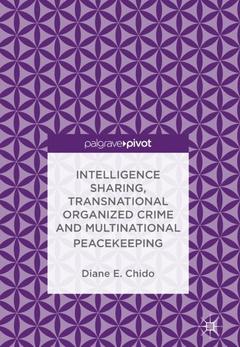Description
Intelligence Sharing, Transnational Organized Crime and Multinational Peacekeeping, 1st ed. 2018
Author: Chido Diane E.
Language: English
Subjects for Intelligence Sharing, Transnational Organized Crime and...:
Approximative price 52.74 €
In Print (Delivery period: 15 days).
Add to cartSupport: Print on demand
Description
/li>Contents
/li>Biography
/li>Comment
/li>
This book describes the problems of intelligence sharing among peacekeeping partners, mainly due to security concerns and a lack of policies and resources. The study posits that the current emphasis on violent extremism as a driver of conflict is misplaced, as TOC is a more pervasive cause, creating and exacerbating instability to increase its markets and capabilities and is an essential funding stream for violent extremists. The book identifies approaches to future missions emphasizing training and resourcing for analysts in the field.
Explains the key role that intelligence plays in fighting against Transnational Organized Crime and in Peacekeeping missions
Argues that the criminal activity of terrorist organizations is easier to target rather than their ideology, and its eradication has significant positive effects
Provides valuable advice for international law enforcement officers, peacekeeping units, and intelligence professionals
These books may interest you

Homegrown Violent Extremism 24.86 €

Homegrown Violent Extremism 220.72 €


